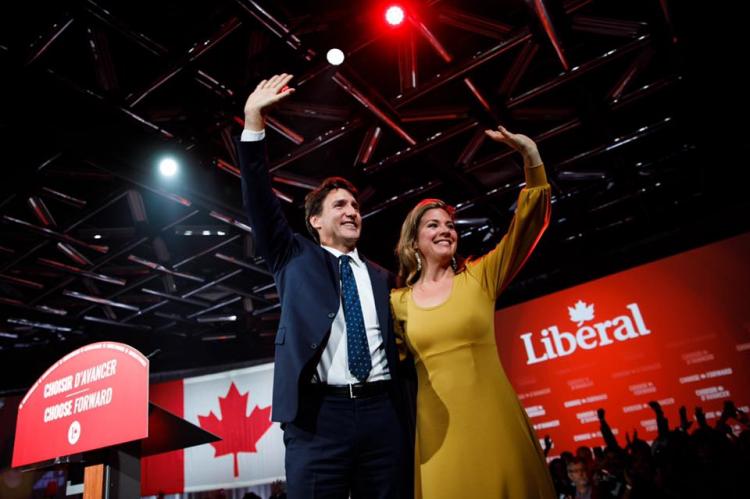What a Liberal win means for cannabis in Canada
The federal Liberal Party of Canada was re-elected to power on Monday, demonstrating that it is not a political death knell for a party in Canada to propose and implement national cannabis legalization.
More interestingly, the Liberals only received a minority mandate this time–157 seats compared to the 184 seats it received last time.
Cannabis was first prohibited in Canada in 1923, when William Lyon Mackenzie King added the substance to the country’s anti-drug laws, joining opium, heroin, and cocaine on the list of prohibited drugs. At that time, King had a minority Liberal government in Parliament.
During the Liberal’s majority mandate from 2015 to 2019, cannabis legalization was introduced, enabling Canadians to cultivate four cannabis plants at home and possess up to 30 grams in public. Illegal activity is still subject to both federal and provincial offences.
That may make it harder for big monumental changes to cannabis laws to make it through.
What could change Minority government: Prime time for private members’ bills
We may see an insurgence of private members’ bills related to cannabis amending current legislation. These bills are pieces of legislation introduced by MPs that are not part of the government’s cabinet. In minority government situations, private members’ bills are more likely to pass.
Collaboration is key in a minority government, as it can be subject to confidence votes. If a majority of parliamentary MPs vote that the government does not have their confidence, the House of Commons can fall and Canadians could go back to another election.
Granted, that’s an unlikely situation at this time, and it’s even more unlikely that a party would make cannabis law a sticking point in negotiations over confidence votes.
Bills from private members typically do not have government support, so most of them fail. Still, there are a couple areas where we could see cross-party support from different MPs.
Pardons
The majority Liberal government pushed through a pardon bill, one that the New Democratic Party says didn’t go far enough. Last month, it was reported that only 44 people had obtained their simple cannabis record suspensions, informally known as pardons.
The process, voted in by the Liberals, is “expedited,” but you still must get fingerprinted, obtain court records, and wait to obtain it. If you have any other convictions or your sentence is incomplete, you cannot apply for one. You can also lose your pardon due to bad behaviour.
With those conditions you can see why less than 100 people have obtained their pardons.
Expungement was supported in the past by Liberal MP Nathaniel Erskine-Smith, who is sometimes a lone Liberal voice pushing progressive drug policy. A private members’ bill by Erskine-Smith or an NDP MP might be able to turn the pardon system into one of expungements, which is more of an automatic process.
Medical cannabis tax
Medical cannabis patients are charged both an excise tax (included in the price) and a sales tax, depending on their province. Medical cannabis is not typically covered by health plans and can be many times more expensive than traditional medications.
That could spur some changes to medical cannabis taxation. Both Erskine-Smith, re-elected NDP MP Don Davies, and re-elected Conservative MP Marilyn Gladu (remember ‘toaster bud’?) appeared with Canadians for Fair Access to Medical Marijuana (CFAMM) in February at a news conference on Parliament Hill to urge the government to remove all tax on medical cannabis.
What stays the same The Bureaucracy
What generally stays the same, irrespective of the election, is the bureaucratic underpinnings of government.
The federal government has an Office for Cannabis and Controlled Substances to draft and enforce regulations, and many of the individuals working there largely remain the same. The Liberals remain in power, so they are unlikely to attempt to push the bureaucracy into a different direction vis-à-vis the cannabis file.
On cannabis matters, expect to continue to see the government and Health Canada take a progressive yet precautionary approach to cannabis rules.
Share Print Harrison Jordan
Harrison Jordan is a graduate of Osgoode Hall Law School in Toronto and enjoys reading and writing about the regulatory affairs of cannabis in Canada and around the world.
- Log in to post comments

